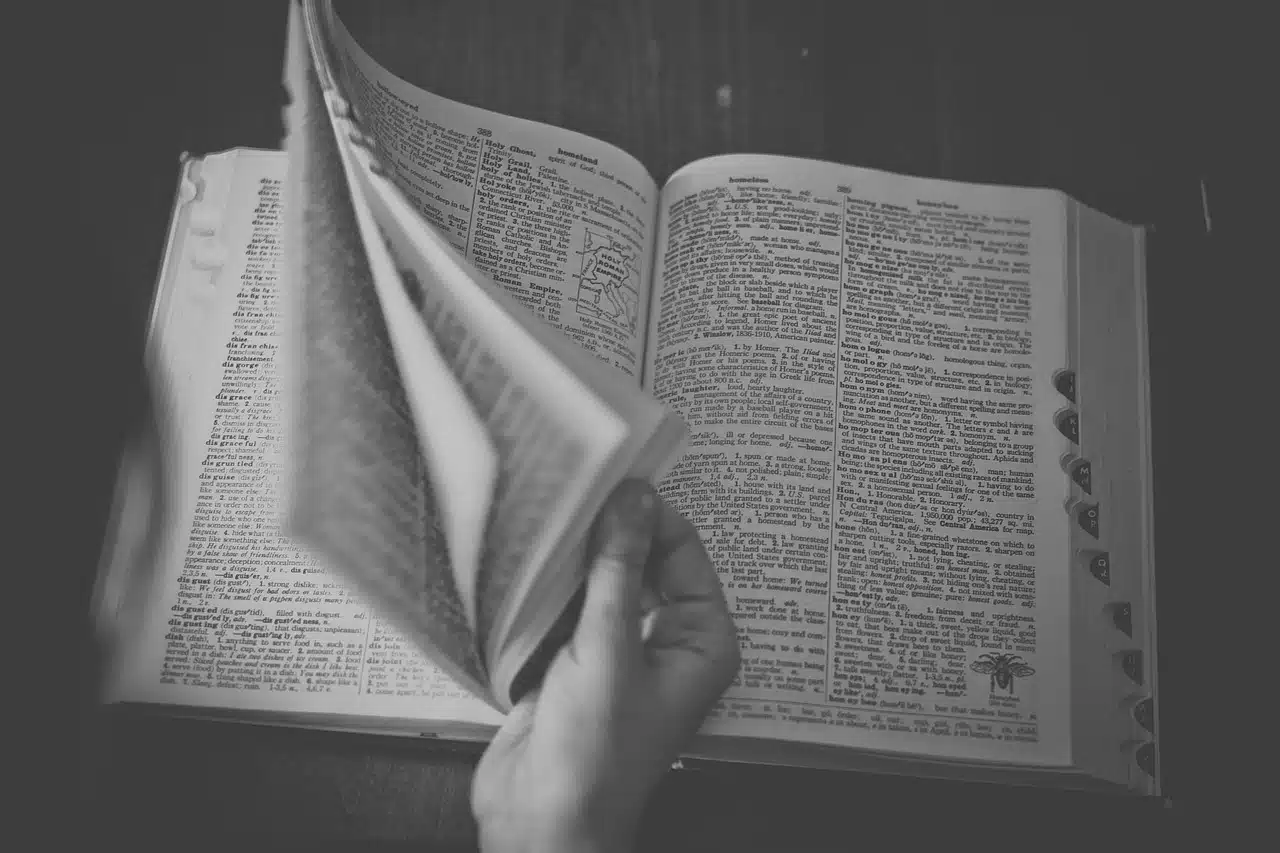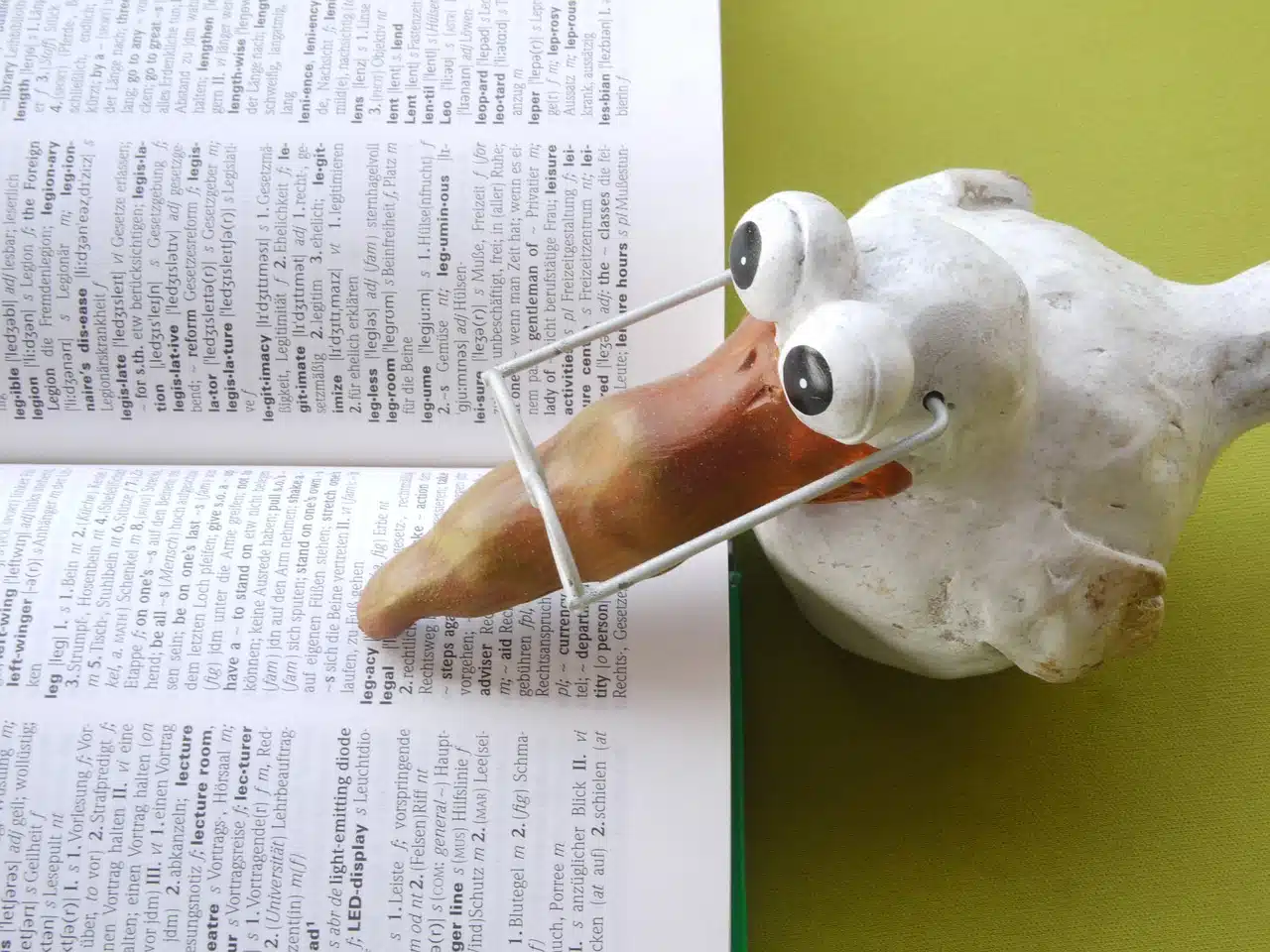
In a dictionary, adjectives, adverbs, nouns and other types of words are collected.
A dictionary is a publication that includes a wide series of words and terms arranged alphabetically and whose purpose is for consultation. Such a compilation usually includes various types of information about each word, such as its meaning (what it means), its etymological history, the way it is written (by virtue of spelling and accentuation rules), and how it is pronounced. It should be noted, however, that a dictionary does not always present all this information.
For example: "I don't know if that word is written with S or Z: I'm going to look it up in the dictionary" , "When I was a kid, I liked to read the dictionary and learn new concepts" , "I'm going to give Juan a legal dictionary ." , so you can use it when you start your degree .
Among the various types of dictionary, the most common is that of the language . These general dictionaries explain, in a precise and brief way, the meaning of words. However, there are others, such as etymological dictionaries; of synonyms and antonyms ; of languages (with the translation of words and idiomatic expressions); specialized (for example, computer science or medicine with its technical vocabulary); of doubts; and grammar (which organize grammatical structures), among others.
One of the best-known dictionaries is that of the Royal Spanish Academy , which is prepared by the body in charge of ruling the rules that govern the Spanish language.
Dictionary vs. encyclopedia
An encyclopedia can be associated with a dictionary in that it is structured in a similar way, placing words alphabetically and offering knowledge about them; However, it is important to note that they are not exactly the same, since an encyclopedia offers very detailed information about a concept or topic, while dictionaries present little data.
For example, while in a dictionary the meanings of words are systematically explained, in an encyclopedia additional data about them is provided, analyzing them from a particular approach (medical, sociological, etc.).
Within generative grammar, on the other hand, the term dictionary refers to the lexical incorporation (of words, with their pronunciation and meaning) that every speaker of a language possesses. It is also called lexicon .
History of these publications
In its origins, the dictionary was an alphabetical compilation of the lexical elements of a language that were accompanied by its definition. Currently it may be a reference book on a particular subject where the words are grouped alphabetically but collected with a purpose.
A medical dictionary , in this framework, consists of a catalog that offers knowledge about those words that have a place in the science of medicine and serves so that those who study or work in this area can consult on specific topics from a scientific perspective . It is used to learn about the usefulness of certain medications and elements or even to acquire knowledge about treatments for certain diseases.
The term used to define this same thing during the Early Middle Ages was glossarium ; In the Late Middle Ages it was changed to vocabularium and dictionarium ; and slowly it was transformed until it reached its current name: dictionary . Although the words vocabulary , glossary and lexicon can be used as synonyms for dictionary, there are clear differences between them.

It is common for dictionaries to present the etymological roots of terms.
Dictionary, glossary, lexicon and vocabulary
A glossary is a catalog of little-known words that have fallen into disuse or that belong to the same discipline. The term lexicon , on the other hand, is the set of words that make up a language or also those that make up the repertoire of voices of an author (such as the lexicon of Luis de Góngora , to mention one case).
For its part, vocabulary refers to the inventory that brings together a set of terms, generally few, that are accompanied by reduced explanations. It is used at the end of a work to add the meaning of certain concepts; If we take the work of Julio Cortázar as a reference, the meanings are usually attached to the Buenos Aires terms so that any Spanish speaker can understand them. Vocabulary also refers to the words that are used in an area or context ( colloquial vocabulary , informal vocabulary , formal vocabulary ).
Classification according to type
According to the nature of the words and the chosen methodology, a distinction can be made between diachronic dictionaries and synchronic dictionaries .
Diachronic dictionaries analyze the development of the lexicons of a given language over a period of time . They can be historical (they study the evolutionary phases that concern the meaning and use of a word) or etymological (they analyze the phonetic and semantic changes of a lexicon since its origins, generally grouping words that derive from the same etym ).
Synchronous dictionaries, meanwhile, collect the lexicon of a certain language in a specific period of time . A distinction is made between monolingual (words from a single language with their respective meanings), plurilingual (establish equivalences between terms from two or more languages), encyclopedic (words from one language with their meanings and articles related to them to complement the knowledge about each one), technical or scientific (meanings in a specific scientific discipline, with its professional jargon) or abbreviations (acronyms, acronyms and formal shortenings of certain terms of a language).

In dictionaries, words of foreign origin are included in italics.
Other kinds of dictionaries
A biographical dictionary brings together alphabetically the lives of certain people related to carrying out the same activity. If we consider a biographical dictionary of classical authors, the publication will offer knowledge about the biography of those writers whose work is popular and considered fundamental to universal literature.
A dictionary of synonyms and antonyms , in turn, is a book that offers words arranged alphabetically with terms that have the same and opposite meanings in a given language. A dictionary of doubts , for its part, compiles terms and expressions that no longer mean the same thing as before, so their meaning collected in a language dictionary is outdated.
In a grammar dictionary, grammatical structures are arranged, with examples of correct and incorrect uses.
In short, a dictionary is a reference book where the characteristics of the words of a certain subject are explained in an orderly manner. It is used to learn the meaning of words or expand knowledge of the lexicon of a particular area.
Finally, it should be noted that the science dedicated to developing the contents of dictionaries is called lexicography . In any case, it should be noted that the data presented usually vary depending on the type of dictionary. In general, the work is published in printed book form, although electronic versions also exist.
